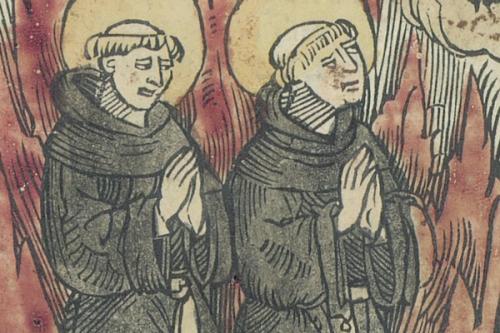Robert Christman wins the 2021 Gerald Strauss Book Prize by the SCSC!

About the prize
The Gerald Strauss Book Prize is named in honour of Gerald Strauss, the influential scholar of the German Reformation and long-time Distinguished Professor of History at Indiana University. The prize, which is awarded at the annual meeting of the SCSC, recognises the best book published in English during the preceding year in the field of German Reformation history. Criteria for selection includes:
- quality and originality of research
- methodological skill and/or innovation
- development of fresh and stimulating interpretations or insights
- literary quality
For this year's Book Award, Robert Christman's book The Dynamics of the Early Reformation in their Reformed Augustinian Context was selected amongst all nominated publications!
Christman will receive a cash prize and a certificate. From all of us at Amsterdam University Press, we congratulate Robert Christman on this fantastic achievement.
About the book
On 1 July 1523, Johann van den Esschen and Hendrik Voes, two Augustinian friars from Antwerp, were burned on the Grand Plaza in Brussels, thereby becoming the first victims of the Reformation. Despite being well-known, the event barely registers in most Reformation histories. By tracing its origins and examining the impact of the executions on Martin Luther, on the Reformed Augustinian world, and on the early Reformation in the Low Countries and the German speaking lands, this study definitively demonstrates that the burnings were in fact the dénouement of broader trends within Late Medieval Reformed Augustinianism, as well as a watershed in the early Reformation. In doing so, it also reveals the central role played by the Augustinian friars of Lower Germany in shaping both the content and spread of the early Reformation, as well as Wittenberg’s influence on the events leading up to these first executions.
Read the book
The table of contents & introduction PDF can be downloaded from our website for free.
The book is included in our Early Modern Studies promotion. Receive a 40% discount with the code AUPEMS until 31 December 2021.
